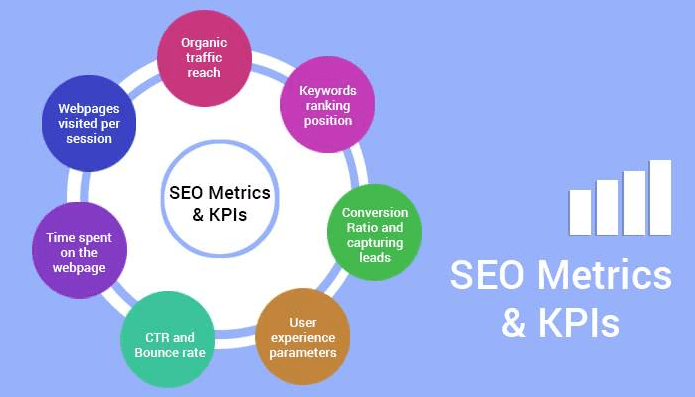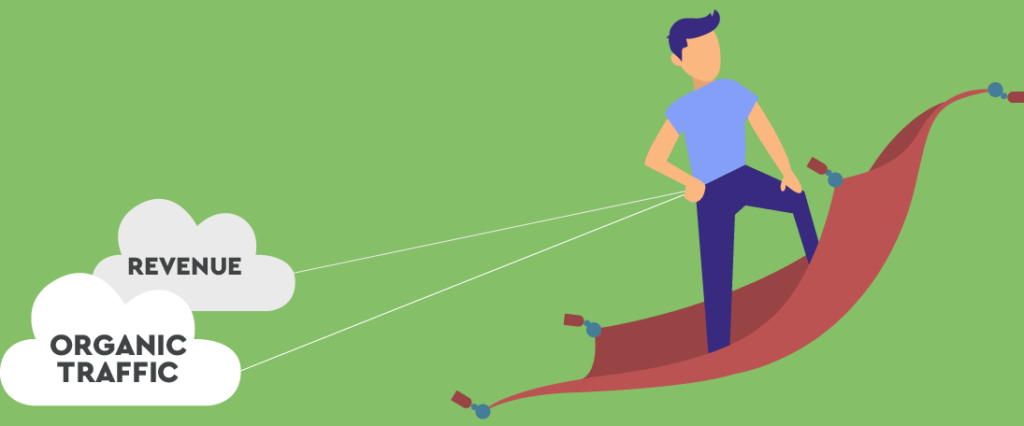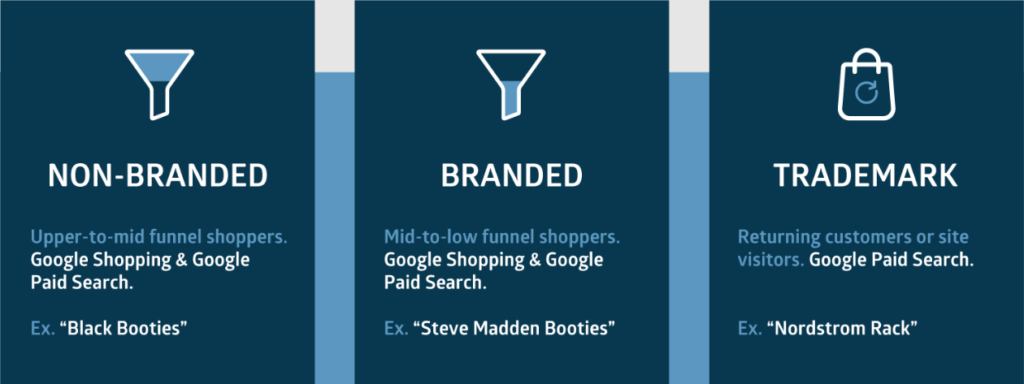It’s especially important to set sharp KPIs for e-commerce, as traffic numbers are often higher than for B2B. This clarifies for both parties what purpose is being worked for and what is experienced as success.
With the proliferation of content on the SERP, Google updates with a huge impact, and personalized search results: SEO is changing fast and keyword positions alone are becoming less and less important for measuring success.
But what should you consider when investing to generate traffic through organic search results? You do this by adjusting Key Performance Indicators (KPIs). These are the seven essential eCommerce KPIs for SEO success.
Table of Contents
Here are the Top 7 most important KPIs for Ecommerce to measure SEO success

1. Organic Sessions
By organic traffic, we mean free traffic to your website from search engines. By sessions, we mean a complete visit to your website by a single user. This visit may consist of multiple page views.
Growth in organic sessions is the most important KPI for SEO success. Overall it equates to the goal of SEO: generate more visitors through organic search results.
A web page can be found with many different keywords. So, don’t focus on the positions of a few key keywords, instead, look at the number of organic sessions.
With this KPI, don’t just look at the growth in organic sessions of the entire website. Also, see which specific pages are growing organically. For example, traffic to a product or category page is often more valuable than a blog post or career page.
2. Organic Traffic Revenue

Growth in organic sessions is of course important, but are these visitors actually buying the products you offer?
When you measure turnover over SEO traffic, you immediately see what the ROI of SEO investment is.
3. Number of new visitors
Many e-commerce businesses prefer to look at lifetime value rather than a single sale. After all, it is much easier to have a satisfied customer return than to persuade a new customer to buy.
4. Goals achieved through organic traffic
Not everything revolves around sales. Not even in e-commerce. So also look at the growth in goals achieved through organic traffic.
With some products, it makes sense for a visitor not to buy online right away. For example, they prefer personal contact first, give it a try, or experience the product in real life. Therefore, on certain buyer journeys, it makes sense to communicate first and only complete the sale at a later stage.
Therefore, you can set other goals, such as:
- Newsletter Subscriptions
- New customer profiles
- Request information
- Contact requests by e-mail or phone
5. Branded and non-branded traffic

By a branded keyword, we mean a search query containing the name of your company or website. An example is a search query such as ‘sneakers men’s foot locker. From this, it is clear that the visitor already knows the brand or website.
A non-branded keyword is a general search query, such as “men’s black sneakers.”
Unbranded traffic growth is an important KPI for e-commerce. After all, these are new visitors who may not know your brand yet. And it doesn’t take a lot of SEO work to generate branded traffic. These visitors probably know where to find your site.
6. Number of transactions
By looking at the number of transactions resulting from organic traffic, you get a good impression of the success of the SEO investment without looking at the average order value.
Not that average order value is not a reliable metric, but SEO is mainly about generating new organic visitors. In addition, new customers generally spend less on a first purchase than repeat customers.
E-commerce is therefore mainly about lifetime value and not about a single sale. Therefore, also look at the number of transactions through SEO traffic and not just at the total turnover.
In addition, there are other reasons to look at the number of transactions and not just at turnover: for example,
- do your customers generally make a lot of repeat purchases?
- Or do you know a lot of extra revenue by achieving through remarketing or upselling?
In these cases, new customers are probably worth even more than making existing ones return.
7. Bounce rate and session duration

Everything around traffic, sessions, revenue, and transactions are generally the most important pillars in measuring SEO success. But less obvious metrics such as bounce rate and session duration can also serve as KPIs for e-commerce.
With a bounce, we mean a visitor who, after viewing the page, immediately returns to the SERP to try a new result. For Google, this is an indicator that the visitor cannot find what he or she is looking for on this page, which can result in a lower position.
The same principle applies to a low session duration. This is also an indication for Google that the visitor is not having a pleasant experience.
To improve the findability of a website, SEO specialists, therefore, try to keep the bounce rate as low as possible and the session duration high. By mapping the improvement in bounce rate and session duration, SEO success can also be measured.
Conclusion
With the above KPIs, I hope to have given you an insight into what is important for you to measure SEO success. Depending on your product, price category, industry, and buyer’s journey, one KPI in this article for your specific e-commerce business will outweigh the other.
My advice is not to focus on tools and data. Use your common sense: what do you want to achieve and how are you going to measure it? Then link the KPIs that fit this goal.
If You find this content please make sure to share and leave your valuable comments. Thank You





